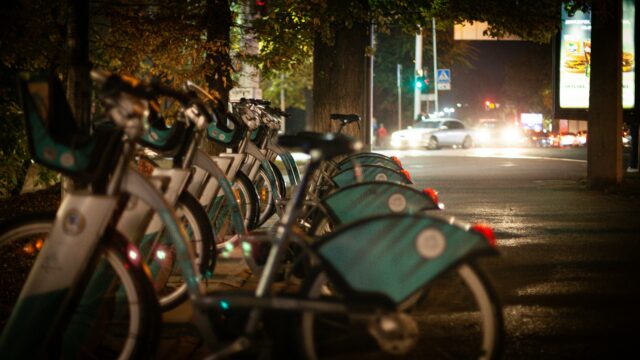New Study: Shared Micromobility’s Climate Impact
by Odochi Akwani, Writer and Content Manager
January 29, 2025
CoMoUK, a UK charity for shared transport, studied the impact shared e-bikes and e-scooters make in reducing carbon emissions.

In a recent study, CoMoUK highlights how shared transport, including bike share and shared e-scooters, has the potential to lower carbon emissions in England and Wales. These services can be utilized without needing to own a car or bike/scooter. Findings from the National Association of City Transportation Officials (NACTO) 2023 Shared Micromobility Report highlight how micromobility has continued to increase since the pandemic in the United States and Canada, which is in line with the increase in ridership in the UK. Additionally, a study from 2022 evaluated how bike share systems can quantify their sustainability impacts using a proposed Bike Share Emission Reduction Estimation Model (BS-EREM). Reports from New York, Chicago, Boston, Philadelphia, Washington D.C., Los Angeles, San Francisco, and Seattle found that the annual emission reductions of the studied bike share systems range from 41 to 5,417 tons CO2-eq.
The findings show that in England and Wales, “408 kilotonnes of CO2e could be reduced every year due to bike share-induced reductions in car kilometer” through bike share usage and “1 megatonne of CO2e could be reduced each year” through e-bike share and shared e-scooter usage. But the key word is could.
To reach this potential, CoMoUK highlights seven recommendations and next steps that can be applied across the pond and here in North America. First and foremost, they plead with government stakeholders at all levels and the private and nonprofit sectors to come together to make these monumental emission reductions happen.
CoMoUK’s Recommendations
- Create a targeted funding and policy program for shared transport
- Create a policy environment that provides clarity for future developments
- Invest in an integrated, sustainable transport mix and a national network of mobility hubs
- Coordinate transport and spatial planning policies
- Create financial support and tax incentives for shared transport
- Incentivise and promote shared transport use
- Adapt a staged approach to reaching ambitious shared transport provisions
________________________________________________________________________________________________
The Better Bike Share Partnership is funded by The JPB Foundation as a collaboration between the City of Philadelphia, the National Association of City Transportation Officials (NACTO), and the PeopleForBikes Foundation to build equitable and replicable bike share systems.
Follow us on LinkedIn, Facebook, Twitter, and Instagram, or sign up for our weekly newsletter. Have a question or a story idea? Email odochi@peopleforbikes.org
